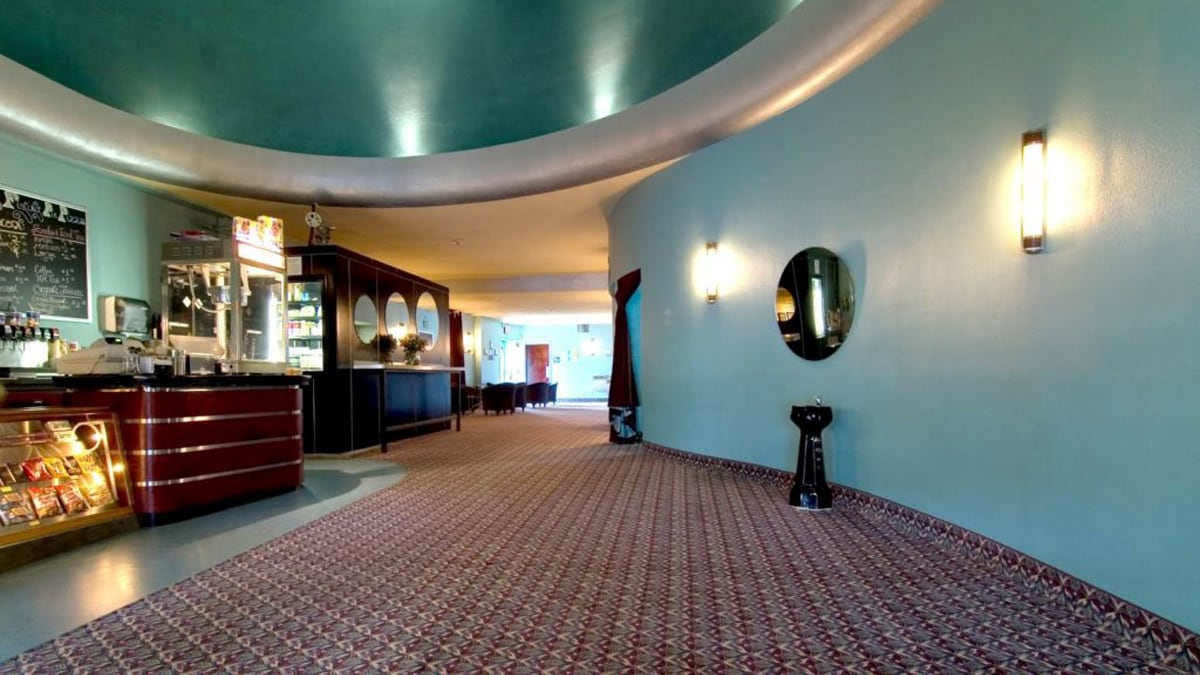Until a month ago, the Academy Theater hadn’t hosted a movie’s opening night in 50 years. As a second-run institution since 2006, the theater had thrived on Portlanders moseying in based on a movie’s word of mouth, not clamoring for newness.
But when the Academy pivoted to showing first-run titles March 4, co-owner Heyward Stewart says he felt “giddy” seeing the ticket line down the block for The Batman. It was the audience influx sorely missed since the Academy reopened from pandemic closure last July.
“I’m excited about the immediacy,” Stewart says of first-run titles. “People love the opening day of a movie, and we’ve never ever been able to do that.”
After Stewart and his wife, Julie, and Ty Dupuis bought the theater and restored its original 1940s opulence, the Academy stood for 16 years as a Montavilla neighborhood fixture and one of a dwindling number of second-run theaters in Portland. Streaming wasn’t yet dominant, and 90-day windows between theatrical premieres and home video releases allowed second-run movie houses like the Academy ample breathing room for audience interest to percolate.
Stewart says this exhibition strategy was still “financially feasible” until the pandemic. According to his records, January and February 2020 were the most profitable consecutive months of his tenure, thanks to the awards-driven second winds of 2019 Oscar contenders like Jojo Rabbit, Little Women and Once Upon a Time… in Hollywood.
But after reopening, the Academy’s business sank to 30% to 40% of its pre-pandemic averages, with no real recovery in sight. When the theater played 2021 Oscar contenders like Don’t Look Up and The Power of the Dog, they tanked. In Stewart’s view, most everyone who wanted to see those Netflix productions had already seen them.
“By the time we get so many things, they’re just played out—absolutely saturated,” he says.
Also cementing the Academy’s programming shift was most major movie studios’ commitment to 45-day theatrical exclusivity windows after last year’s dabblings with simultaneous streaming and cinema releases. It’s a move that secures first-run theaters’ industry position for now, and Stewart says he needed only to look a few miles away to the Laurelhurst Theater, which made the same programming switch in 2018, for a successful example. (For those counting, the Kennedy School and Avalon Theatre now stand alone as Portland’s only remaining second-run movie houses.)
At $9 for general admission, the Academy’s ticket prices are up slightly, but so is business—20% thus far over February’s second-half numbers, Stewart says. He also senses that showing new movies is drawing Portland crowds from beyond Montavilla.
“Every time you have to tell someone where the condiments are, you know they haven’t been here before,” he laughs. (The condiments hide in plain sight, centered in the Academy’s aqua-colored lobby.)
Of course, considering the Academy’s core neighborhood audience is crucial. Stewart says he anticipated some minor disappointment with the switch to first-run films, but the response has been largely supportive. One regular told him they’d see anything the Academy screened; the theater is basically their “retirement.”
The most common query has been when the Academy will resurrect its repertory fare. Historically, the theater drew strong crowds for classics like Purple Rain, My Neighbor Totoro, Labyrinth and The Shining. While studio rules about not interrupting first-run exhibitions make single screenings harder to book, Stewart is looking at the May calendar for possibilities.
“We’re still getting used to this, but the long-term plan is to still have a variety,” he says.
So although the Southeast Stark Street marquee below the theater’s distinct cylindrical, half-dome now touts blockbuster titles like Morbius and The Lost City, most everything else around the Academy remains the same. Stewart estimates the greatest service the theater could provide its Montavilla faithful was finding a way to survive.
“We have an important place in the neighborhood and have employees we need and want to keep,” he says. “There’s a lot more at stake here than just a business model.”
GO: The Academy Theater, 7818 SE Stark St., 503-252-0500, academytheaterpdx.com. $6.50-$9.

